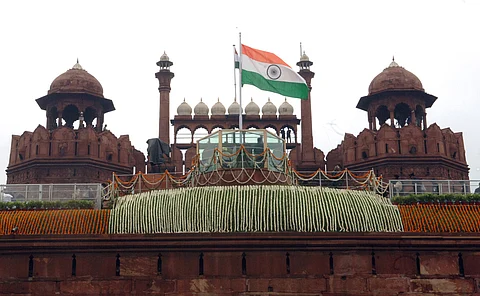

On the eve of the twin Independence Days of India and Pakistan, a question that has puzzled historians and lay people alike refuses to fade: Did the two nations actually gain freedom on August 15, 1947 — or was Pakistan’s independence, in fact, on August 14?
Officially, the Indian Independence Act of 1947 is clear: “As from the fifteenth day of August… two independent Dominions shall be set up… to be known respectively as India and Pakistan.” In his first broadcast, Muhammad Ali Jinnah described August 15 as “the birthday of the independent and sovereign state of Pakistan.” Early postage stamps issued in 1948 also carried the date 15 August 1947.
And yet, Pakistan today celebrates its independence on August 14 — the date on which Jinnah was sworn in as Governor-General in Karachi. The shift, historians say, stemmed from the fact that Lord Louis Mountbatten administered Jinnah’s oath on the 14th before leaving for Delhi, where India’s transfer of power was scheduled at the stroke of midnight.
B.P. Acharya, a retired Special Chief Secretary of Telangana, has a unique insight into how that midnight drama came to be.
In the early 1980s, while a student at Jawaharlal Nehru University, Acharya worked with celebrated authors Larry Collins and Dominique Lapierre of the Freedom at Midnight book fame. Acharya was assigned to edit the personal papers and private documents of Mountbatten for another book.
Among the “huge loads” of archival material, Acharya stumbled on a taped interview Mountbatten gave the authors — later published in Mountbatten and the Partition of India.
“What struck me,” Acharya recalls, “was Mountbatten’s characteristic arrogance and insouciance. He confessed he chose August 15 simply because it marked the second anniversary of Japan’s surrender in World War II.
He had not consulted Indian leaders, who thought it was an inauspicious day as per astrologers.
In the interview, Mountbatten admitted: “I hadn’t consulted the astrologers. Nehru didn’t believe in astrology, but he said so many people did, and I’d chosen an inauspicious day. He suggested we have a midnight meeting just before the 15th so it would be more auspicious. What a marvellous, dramatic idea — and you’ll remember, it was done not for drama but because I’d chosen the wrong day!”
As per the Hindu calendar, the day starts with the rising of the sun, so at midnight, it was still August 14. Therefore, in a sense, both countries gained freedom on August 14.
Acharya says this exchange reveals much about the power dynamic of the time.
“It was essentially a Viceregal whim, and our leaders — even Patel and Kripalani, who objected — ended up accommodating it. The midnight ceremony was a compromise to make an inauspicious day acceptable,” he notes.
The solution came from the difference between the Gregorian and Hindu calendars. In the Hindu system, tithis begin at sunrise. August 15, 1947, according to the panchang, fell on Krishna Paksha Chaturdashi — the 14th lunar day of the dark fortnight — with the inauspicious Amavasya (new moon) following soon after.
By avoiding the sunrise of the 15th and instead transferring power at midnight — which was already the start of August 15 by Western reckoning — leaders sidestepped the astrological pitfalls while keeping Mountbatten’s chosen date intact.
“It was what I call an ‘astrological upay’ — a clever workaround born out of compulsion, not choice,” Acharya says. “The British Viceroy’s ego, Indian superstition, and political expediency all converged to produce that so-called ‘freedom at midnight.’”
Over the years, the symbolism of the midnight handover — immortalised by Nehru’s “tryst with destiny” speech — became a powerful part of India’s independence narrative. Pakistan’s earlier oath-taking led to its own observance on August 14, adding another layer to the confusion.
Yet Acharya sees the episode as a telling snapshot of the era. “It showed how even at the moment of independence; we were negotiating between colonial arbitrariness and indigenous belief systems. That tension, in some ways, still shapes our politics and public life,” he reflects.
Seventy-eight years on, the midnight hour remains a moment of pride and ceremony. But as this rediscovered account suggests, the dates we mark with flag-hoisting and fireworks were not handed down by destiny alone — they were shaped in no small part by a Viceroy’s calendar, a dash of superstition, and an agreement struck in the shadows of history.
Have you liked the news article?